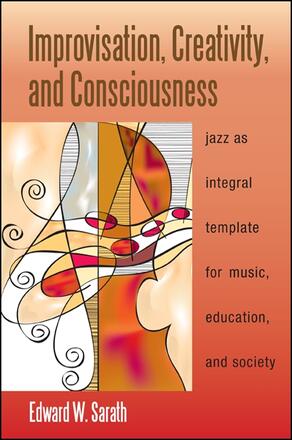
Improvisation, Creativity, and Consciousness
Jazz as Integral Template for Music, Education, and Society
Alternative formats available from:
Using insights from Integral Theory, describes how the improvisational methods of jazz can inform education and other fields.
Description
Jazz, America's original art form, can be a catalyst for creative and spiritual development. With its unique emphasis on improvisation, jazz offers new paradigms for educational and societal change. In this provocative book, musician and educator Edward W. Sarath illuminates how jazz offers a continuum for transformation. Inspired by the long legacy of jazz innovators who have used meditation and related practices to bring the transcendent into their lives and work, Sarath sees a coming shift in consciousness, one essential to positive change. Both theoretical and practical, the book uses the emergent worldview known as Integral Theory to discuss the consciousness at the heart of jazz and the new models and perspectives it offers. On a more personal level, the author provides examples of his own involvement in educational reform. His design of the first curriculum at a mainstream educational institution to incorporate a significant meditation and consciousness studies component grounds a radical new vision.
Edward W. Sarath is Professor of Music and Director of the Program in Creativity and Consciousness Studies at the University of Michigan. He is the author of Music Theory through Improvisation: A New Approach to Musicianship Training.